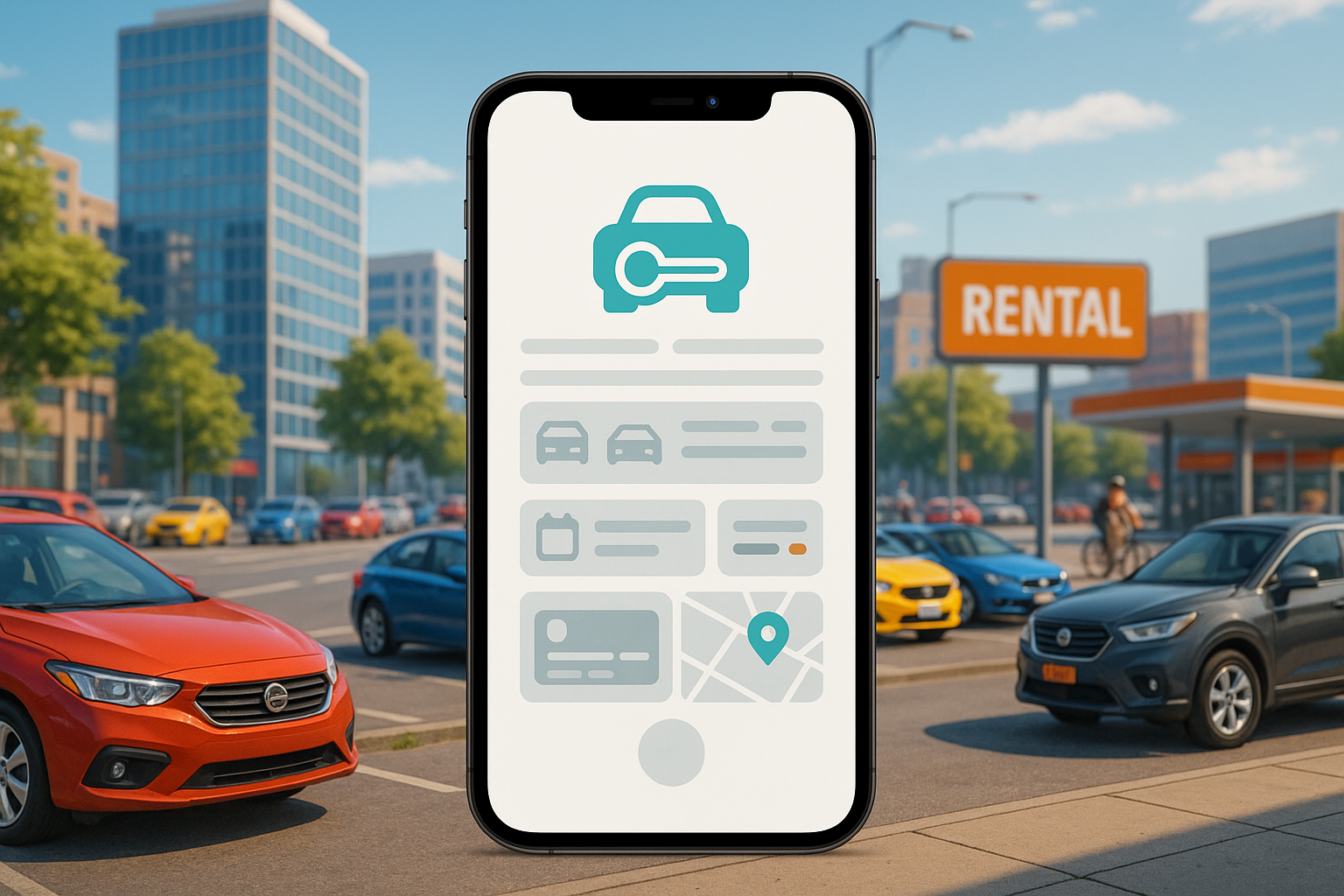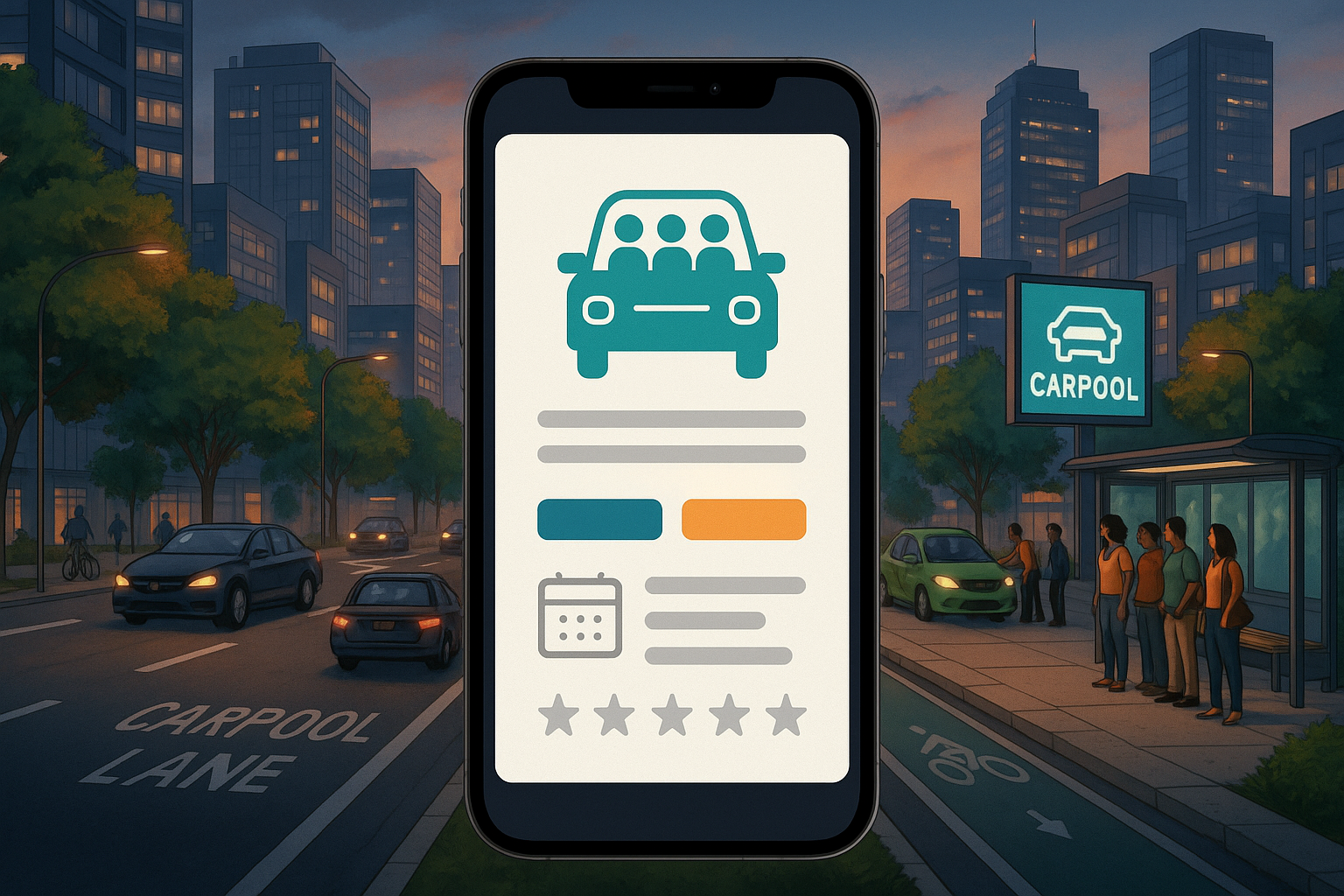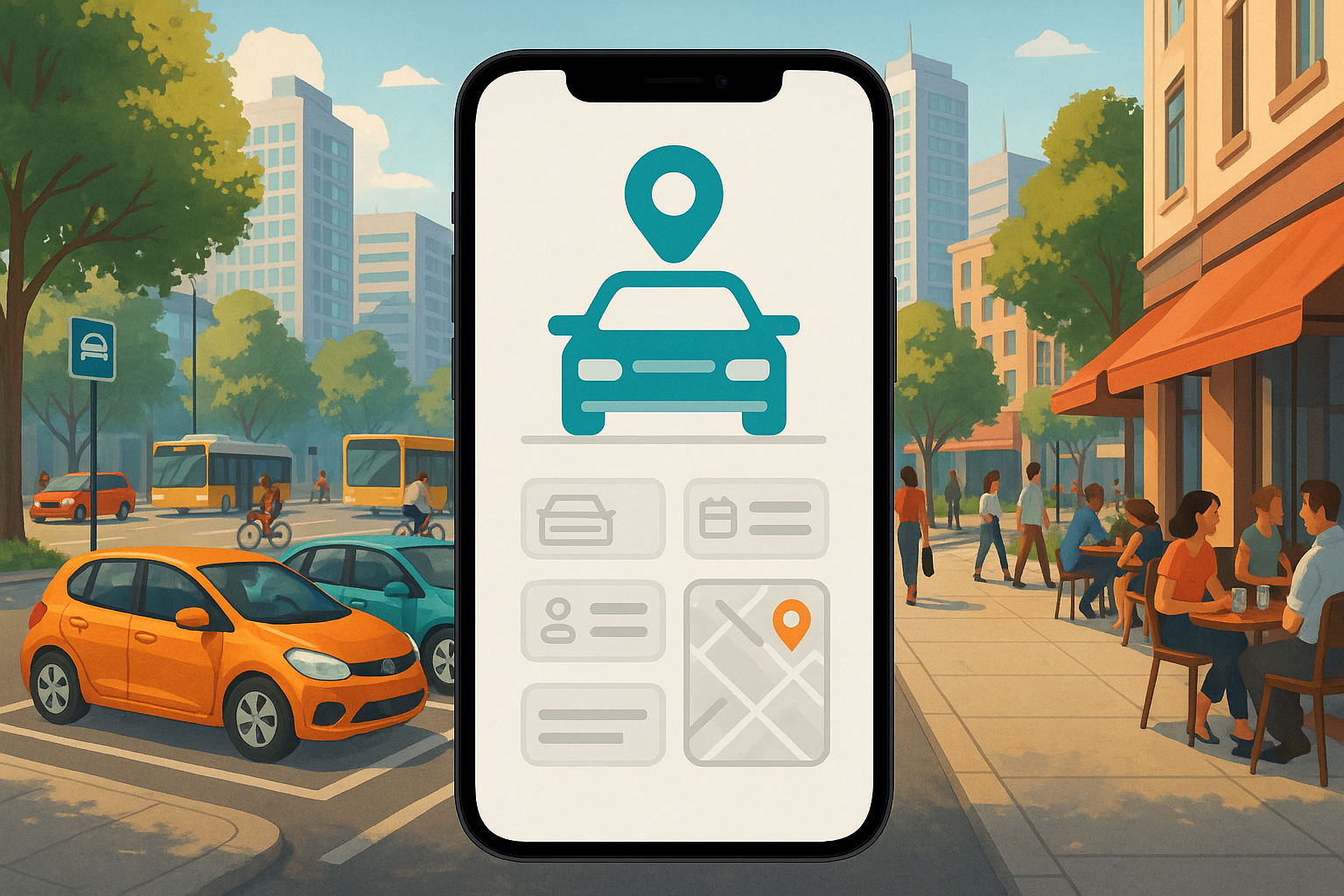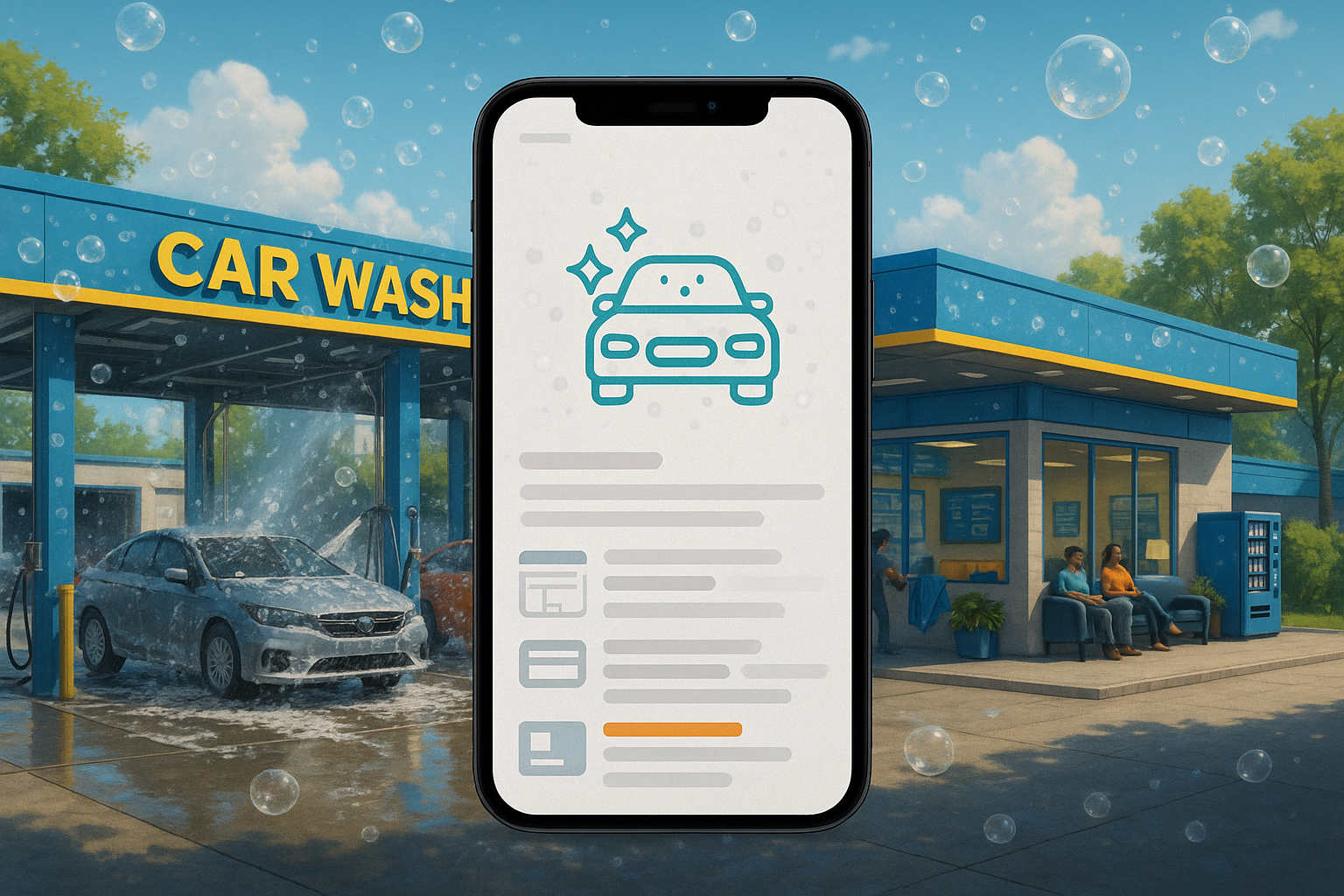Introduction
The digital transformation of the transportation industry has made car rental services more accessible than ever. A tap on a smartphone can now unlock a vehicle for a cross-country road trip, a quick errand, or a daily commute. However, behind this seamless user experience lies a web of significant technical challenges. Developing a car rental app is far from a simple endeavor; it involves integrating complex systems for real-time fleet management, secure payments, user verification, and GPS tracking, all while ensuring a smooth, intuitive interface for the customer.
Many businesses underestimate the complexities and attempt to build these applications in-house, often leading to costly delays, security vulnerabilities, and a product that fails to meet market expectations. The path to a successful car rental app is paved with critical decisions about technology, business models, and, most importantly, the development partner you choose.
This comprehensive guide will walk you through the essential aspects of car rental app development. We will explore what these apps entail, why building one in-house is so difficult, the different business models you can adopt, and the potential costs involved. We will also discuss what to look for in a development partner and how we at MetaCTO, a top US AI-powered app development firm, leverage our deep expertise to build, grow, and monetize powerful mobile applications. We don’t just build apps; we build businesses.
What is a Car Rental App?
At its core, a car rental app is a mobile application that digitizes and simplifies the entire process of renting a vehicle. It serves as a digital bridge between a fleet of vehicles and customers who need temporary access to one. These applications empower users to browse, reserve, and pay for vehicles directly from their mobile devices, eliminating the need for traditional paperwork and in-person bookings.
The functionality extends beyond simple reservations. Users can often select from a diverse range of vehicles, including standard cars, trucks, vans, or even prestigious luxury vehicles, all through the app’s interface. The typical user journey is designed for maximum convenience:
- A user downloads the app and registers an account, often involving identity and driver’s license verification.
- They search for available vehicles based on location, date, and vehicle type.
- Once a suitable vehicle is found, they reserve it through the app.
- The user then collects the reserved vehicle at a designated location, such as a company’s car park.
- Payment is handled securely within the app, using integrated mobile payment solutions.
- Throughout the rental period, the app can be used to manage the booking, with many services allowing customers to extend rental times or days with just a few taps.
In more advanced and future-facing models, the convenience is pushed even further, with features that may allow a user to have the car delivered to and dropped off at a desired location, creating a truly on-demand experience.
Reasons That It Is Difficult to Develop a Car Rental App In-House
Embarking on in-house development for a car rental application may seem like a cost-effective strategy that offers complete control. However, the reality is often a stark contrast, fraught with technical and logistical hurdles that can derail a project. The specific nature of a car rental platform demands a level of specialized expertise and infrastructure that most generalist, in-house teams do not possess. Here are the primary reasons why this path is so challenging.
Limited Technical Expertise Pool
A successful car rental app is not a single, monolithic piece of software but a complex ecosystem of interconnected features. Building it requires a team with a diverse and deep skill set that is difficult to assemble and retain internally. The required expertise includes:
- Backend Development: To manage user data, vehicle inventory, bookings, and payments, all in real time.
- Frontend Development (iOS & Android): To create a native, responsive, and intuitive user interface on multiple platforms.
- API Integration: To connect with third-party services for maps (like Google Maps API), payment gateways, and insurance providers.
- GPS and Geolocation Services: For real-time vehicle tracking, locating pickup/drop-off points, and tracking trip distances.
- Cybersecurity: To implement robust authentication, data encryption, and comply with regulations like GDPR to protect sensitive user and payment information.
- Database Management: To handle vast amounts of data efficiently, from user profiles to rental histories and fleet analytics.
- UI/UX Design: To craft a user journey that is seamless, engaging, and builds trust.
Finding, hiring, and coordinating individuals with all these specializations is a significant challenge. An in-house team is often a “jack-of-all-trades” unit, which may lack the profound, specialized knowledge needed to execute each component of a car rental app to a high standard. This limited technical pool can lead to compromised quality, security flaws, and a poor user experience.
Significant Infrastructure Investment
Beyond personnel, a car rental app requires a substantial investment in technical infrastructure. This isn’t just about buying a few servers; it’s about building a secure, scalable, and reliable backend environment. Key infrastructure costs include:
- Servers: Whether on-premise or cloud-based, you need robust server capacity to handle user traffic, data processing, and real-time communications. On-premise deployment, while offering security, requires massive upfront capital for hardware, plus ongoing costs for maintenance, power, and physical security.
- Database Systems: High-performance databases are needed to manage the constant flow of information without latency.
- Development and Testing Environments: Separate environments must be maintained for development, testing, and staging to ensure new features don’t break the live application.
- Monitoring and Maintenance Tools: Continuous investment is required in software for monitoring server health, application performance, and security threats.
These are not one-time costs. Infrastructure requires constant maintenance, updates, and scaling as your user base grows, representing a significant and ongoing operational expense that can strain the budgets of startups and even established businesses.
Slower Scaling Capabilities
Market dynamics can change rapidly. A successful marketing campaign or a new partnership could lead to a sudden surge in users. An in-house team and infrastructure may struggle to adapt to such growth. Scaling an application involves more than just adding server capacity; it requires re-architecting parts of the system to handle increased load, optimizing database queries, and ensuring all integrated services can cope with the higher volume of requests.
An in-house team, often already stretched thin with day-to-day maintenance and feature development, may lack the agility to scale the platform quickly and effectively. This can result in system crashes, slow performance, and a frustrating user experience, which can irreparably damage your brand’s reputation. In contrast, an experienced development agency has faced these scaling challenges before and builds applications from the ground up with scalability in mind, using proven architectural patterns and cloud technologies that can adapt dynamically to demand.
Different Types of Car Rental Apps
The car rental app market is not a monolith. Several distinct business models have emerged, each catering to different customer needs and operational structures. Understanding these models is crucial for positioning your product effectively in the market.
Self-Driven Service Model
This is the most traditional model, digitized for the modern era. In this instance, a company owns or leases a fleet of vehicles and makes them available for customers to rent and drive themselves. This service is particularly useful for a variety of scenarios:
- For individuals who have a driver’s license but do not own a vehicle.
- For those whose primary vehicle is temporarily out of service and need an alternative for work or personal tasks.
- As a cost-effective option for clients who only need a car for a short period, such as a weekend trip or a business visit.
- For travelers who require a vehicle to explore a new city or country.
The entire process is managed through the app, from booking and payment to extending the rental period. The customer typically picks up the car from a designated company lot. Several major players operate successfully under this model.
- Rentalcars.com: A massive aggregator that allows users to rent a vehicle in over 160 countries. It boasts a user base of over five million downloads.
- Europcar: Another global aggregator that lets customers hire a vehicle worldwide and select their ideal pick-up point. The platform has facilitated the download of over one million vehicles.
- National: This service provides extensive coverage with more than 1,500 locations globally, making it a reliable choice for business and leisure travelers.
Peer-to-Peer (P2P) Car Sharing Model
Peer-to-peer car sharing introduces a disruptive, community-based approach to car rentals. The business structure is similar to the self-driven model in its on-demand nature. However, it differs in that customers rent cars from companies rather than from private owners. [Editor’s Note: The source material indicates P2P apps involve renting from companies, which contrasts with the common definition of P2P. We present the facts as provided.] This model can make life easier in numerous situations, such as visiting new places, dealing with an unexpected car breakdown, or wanting to test-drive a specific model or brand before buying.
The P2P model also presents potential societal benefits, such as helping to reduce traffic jams and alleviating urban parking issues by promoting shared vehicle usage over individual ownership. The user process is highly personalized: a renter selects a location and a host or a specific vehicle, and then both parties agree on a convenient location for the car to be dropped off.
- Turo: A leader in the peer-to-peer space, Turo has earned over four-star ratings and more than five million downloads. It operates in the U.S., Canada, and the United Kingdom, offering powerful search filters that allow users to find cars by brand, location, or even a specific “experience” (e.g., “deluxe & super deluxe”).
- Getaround: Offering a similar experience to Turo, Getaround has achieved high popularity and built a large user base. It is known for having specific and stricter specifications for the cars listed on its platform, ensuring a certain standard of quality and safety.
Cab Booking / Ride-Hailing Model
Perhaps the most well-known and widely used model, cab booking or ride-hailing apps have fundamentally changed urban transportation. These apps do not offer cars for self-driving; instead, they allow users to hire a taxi or a private car with a driver to take them to their destination. Users can book a ride in real-time or schedule one ahead of time.
A key feature of these apps is the emphasis on user trust and personalization. They often feature detailed profiles and reviews of drivers, allowing users to choose their ride and have a more pleasant and personalized experience. The core of the user interface is typically a user-friendly, interactive map showing available taxis, which customers can book with a single touch.
- Uber: A world-renowned company that has become synonymous with ride-hailing. Operating in over 785 cities, Uber offers a range of services, from economical ride-sharing and standard taxis to luxurious cabs. The platform is also known for its flexibility, allowing users to choose from various payment options.
- Lyft: Another transportation leader, Lyft operates throughout the U.S. and Canada. The app’s process is streamlined for speed and convenience: a user selects their pickup location, and the application matches them with a nearby ride in seconds, providing a cost estimate upfront.
Cost Estimate for Developing a Car Rental App
Estimating the cost of developing a car rental app requires a detailed breakdown of the features and the development hours required for each. The total cost is influenced by the complexity of the features, the technology stack, the choice of platforms (iOS, Android, Web), and the hourly rate of the development agency.
Based on industry analysis, here is a breakdown of the estimated hours and costs for building the core features of a car rental app like Turo. These figures represent a general baseline; a fully custom solution with unique features will require a tailored quote.
| Feature Category | Estimated Development Hours | Estimated Cost (USD) |
|---|---|---|
| User Features (Registration, Profile Setup, Search) | 100–150 hours | $5,000–$7,500 |
| User Features (Booking System, Payment Integration) | 150–200 hours | $7,500–$10,000 |
| Advanced Features (GPS Tracking, Real-Time Updates) | 120–160 hours | $6,000–$8,000 |
| Advanced Features (Push Notifications, Ratings & Reviews) | 100–120 hours | $5,000–$6,000 |
| Admin Features (Admin Panel, Reporting Dashboard) | 150–200 hours | $7,500–$10,000 |
| APIs & Integration (Map API, Payment Gateway, Insurance) | 120–150 hours | $6,000–$7,500 |
| Security (Authentication, Encryption, GDPR) | 80–120 hours | $4,000–$6,000 |
| Total Estimated Hours & Cost | 820–1,100 hours | $41,000–$55,000 |
This table illustrates that building a robust car rental app is a significant undertaking. The total estimated cost of $41,000 to $55,000 covers the foundational features. More advanced functionalities, such as AI-powered recommendations, dynamic pricing algorithms, or sophisticated fleet management analytics, would increase both the development time and the overall investment. This is why partnering with an experienced agency that can deliver value efficiently is paramount.
Top Car Rental App Development Companies
Choosing the right development partner is the single most important decision you will make in your journey to launch a car rental app. A top-tier company does more than just write code; they act as a strategic partner, guiding you through technical decisions, market positioning, and long-term growth.
1. MetaCTO
At MetaCTO, we stand at the forefront of mobile innovation. As a leading US AI-powered app development firm, we specialize in transforming complex ideas into market-leading mobile apps. With over 20 years of experience, a portfolio of over 120 successful projects, and a 5-star rating on Clutch, we have a proven track record of helping startups and established businesses build, grow, and monetize their digital products. Brands like ATP, Carlyle, and Liverpool FC trust us to deliver excellence.
Integrating car rental functionality into a mobile app is fraught with challenges. The need to synchronize real-time vehicle availability, process secure multi-currency payments, manage intricate booking calendars, and track a fleet of assets via GPS requires deep architectural expertise. A failure in any one of these areas can lead to double bookings, payment fraud, poor user trust, and operational chaos. This is where hiring a specialized agency like us makes all the difference.
We handle every step of the process, from initial concept validation to launch and beyond. Our Custom Mobile App Development service ensures that your app is built on a solid, scalable foundation, tailored precisely to your business needs. For those looking to enter the market quickly, our Rapid MVP Development service can take you from idea to a market-ready app in as little as 90 days. We build solutions that are not only feature-rich and user-friendly but also designed for seamless customer experiences and sustainable business growth, incorporating everything from real-time booking and fleet management to secure payment integration.
Other Leading Companies
The car rental app development industry is home to many skilled agencies. The best companies distinguish themselves by offering comprehensive, end-to-end solutions designed for startups, rental fleets, and large mobility brands alike. Here are the common characteristics of top-tier development partners:
- Custom and White-Label Solutions: They provide both fully custom builds and ready-to-deploy white-label apps, allowing businesses to launch quickly without starting from scratch. These white-label solutions are typically fully branded and can be customized with new features and integrations.
- Automation and Efficiency: Top solutions help automate document management, contracts, and user verifications, enabling businesses to operate in a 100% digital and efficient manner. An instant admin approval system gives businesses full control while ensuring customers enjoy fast, hassle-free bookings.
- Advanced Feature Integration: They come with powerful filter options, real-time rental tracking for both customers and businesses, and built-in payment gateway integration to accept secure payments from anywhere via cards, wallets, or UPI.
- Global Readiness: Top development solutions are built for global operations, with essential features like multilingual and multi-currency support.
- Scalability and Reliability: Leading companies build systems that are thoroughly tested for reliability, high performance, and scalability, ensuring the app can grow with the business. Many also offer on-premise deployment options for clients who require their software to run on their own in-house servers.
- Data-Driven Insights: Advanced reporting and analytics dashboards are included to help businesses make informed, data-driven decisions about their fleet, customer behavior, and revenue streams.
- Comprehensive Support: The best firms provide dedicated teams for onboarding, training, and 24/7 technical support, backing their clients long after the initial launch.
Conclusion
Developing a car rental app is a journey into a technologically sophisticated and highly competitive market. As we’ve explored, the process is laden with challenges, from the technical complexities of building in-house and the significant infrastructure investments required, to the critical strategic decision of which business model to pursue. Whether you opt for a self-driven service, a peer-to-peer network, or a ride-hailing platform, success hinges on a robust, scalable, and user-friendly application.
We have broken down the estimated costs, showing that building a quality app is a serious investment. More importantly, we’ve highlighted that the most crucial investment you can make is in the right development partner—one with the experience, expertise, and strategic vision to navigate these challenges successfully. An expert partner transforms the development process from a liability into a competitive advantage.
At MetaCTO, we have spent two decades turning ambitious ideas into successful mobile applications. We understand the intricacies of building complex platforms and are dedicated to ensuring your app is not only launched but is also positioned to thrive and scale.
If you are ready to bring your car rental app idea to life or want to integrate powerful rental features into your existing product, let’s start the conversation.
Talk with a Car Rental expert at MetaCTO to integrate a world-class solution into your product.






